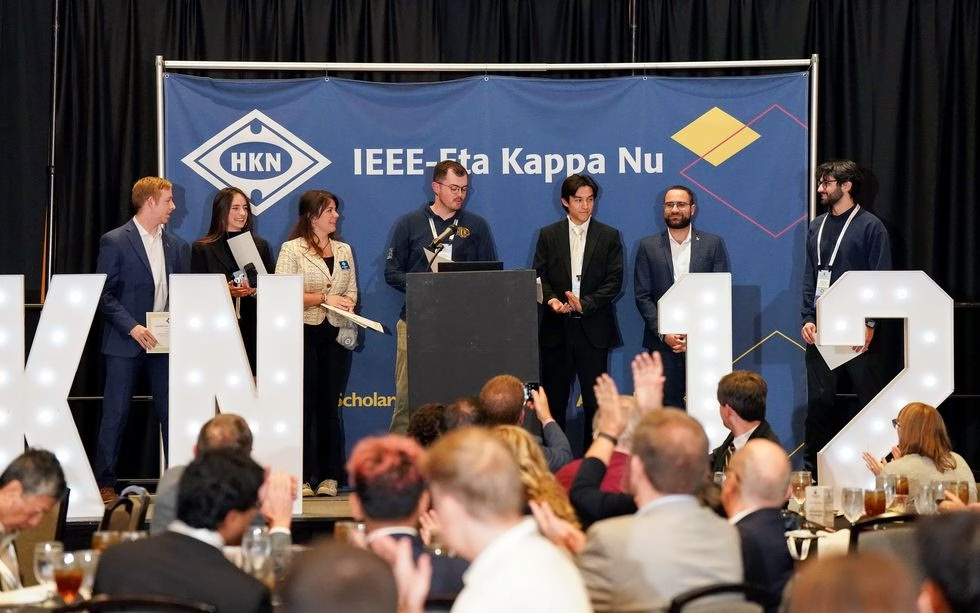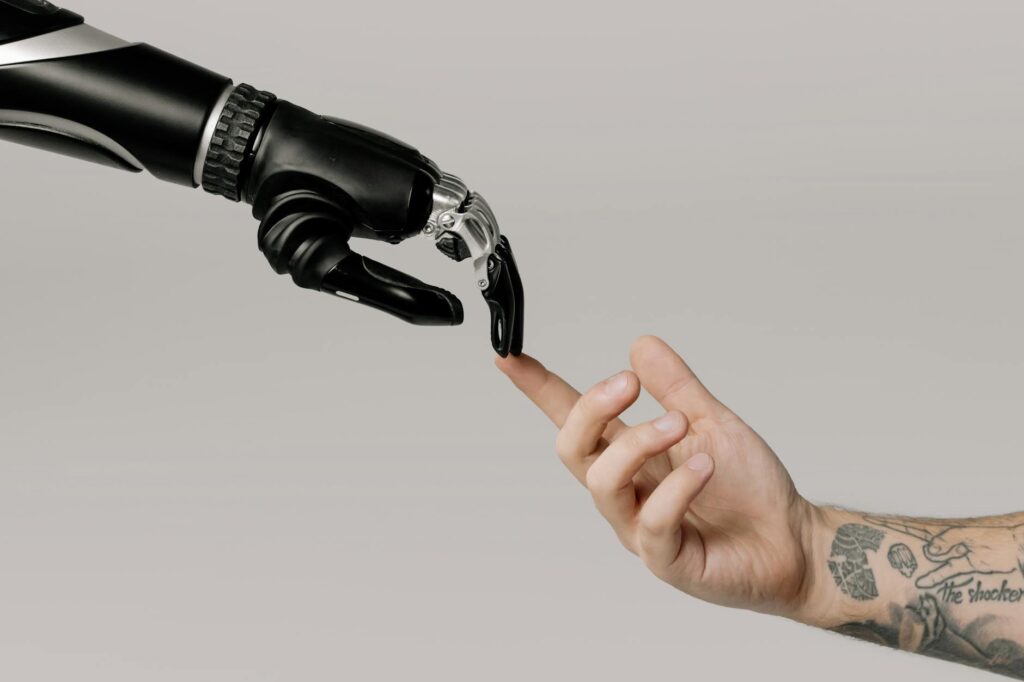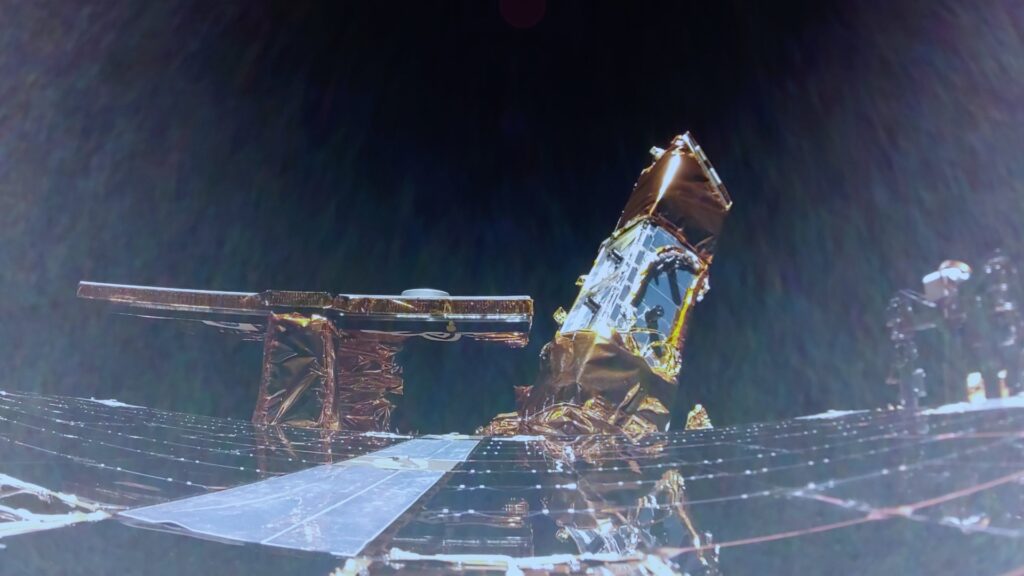Technology and religion the greatest threat to humankind

Technology tamfitronics

The author believes that technology is a danger to humankind because of its indiscriminate nature.
A question I am grappling with is why, with all the technology and innovations of today, it seems life is getting more and more miserable and catastrophic? And why does it seem that the Earth is being threatened by technologically advanced human beings?
If you examine precolonial African civilisations you realise they were in harmony with the environment and sought a deeper understanding of all forms of life because they knew their world depended on their coexistence with nature. Their innovations were not just experimental, they were mainly existential. The threats to their lives and livelihoods were primarily wars and natural disasters — droughts, flooding, disease, and plagues. But despite this, those civilisations had survival and coping mechanisms they had developed to deal with these natural phenomena.
Fast forward to the present day. The 19th and 20th centuries have witnessed more human-driven suffering than any other time in the history of humankind. Ironically, these centuries, with their heightened levels of human-created technology (the industrial revolution), have seen a proliferation of disasters. What has happened to humankind? Why have we become so careless, aimless, inhumane and destructive?
For some time I have been looking at the philosophy of an Indian yogi named Sadhguru, who presents seminars around the world. I am intrigued by heterodox thinking and have fashioned myself as a heterodox thinker who is opposed to shallow thinking and hates blind conformity and beliefs.
Sadhguru asserts: “Technology doesn’t have discriminatory powers. You can deliver disaster to humanity through technology.”
David Eagleman, a neuroscientist, asked Sadhguru, “When you look at all the rabbis, the sages, and imams and the people all over the world of different traditions, what do they have in common?” Sadhguru replied: “The common thing is they all believe in something they don’t know. Essentially, believing means that you are not sincere enough to admit that you do not know.”
Sadhguru’s point is that as humans we try to handle our ignorance with solace. We desperately want to believe in something for sanity to prevail. Religions and faiths have controlled people’s minds for a long time because they have given solace and an illusion of balance. However, solace is one thing and seeking knowledge and understanding is another altogether.
Arising from this argument by Sadhguru, I submit that humans have developed fragile egos and have become egotistical, exclusivist, and sadly, the ideal application of our five senses has diminished. We have become defined by greedy consumerism and obsessive, unethical accumulation. Even if in the pursuit of my business I kill so many people and do irreparable damage to the environment, I am not bothered because I have made a profit. We have this acute absence of a sense of social, environmental responsibility and ethics. Only a stupid person does not realise that the cost of that which appears as a profit to him will be disastrous to his own grandchildren who will inherit the world.
It can be argued that solace doesn’t promote the admission of one’s ignorance. Human beings have become less inclined to seek the truth. They are comfortable in this illusionary world of subscribing to things they do not know but firmly ground themselves in these beliefs and are prepared to die defending them. Imagine being prepared to die in defence of something you do not know and allow yourself to act out of sheer ignorance. Soldiers are brainwashed to be prepared to die for their country’s flag. What a flag is but a piece of cloth? If it is so important to die for, why doesn’t the president die first? Why doesn’t he go with you to battle to lead the way? That flag is a symbol of a dangerous cult because it has assumed an identity of its own around which soldiers, and the citizens of a country are mobilised. Consequently, we spend time and money promoting these cults rather than promoting world peace. In a world where humankind has become so interconnected, we are prepared to unleash nuclear bombs even if they annihilate the entire universe. To achieve what?
Sadghuru argues, “If you are talking about seeking to know, then belief becomes of no consequence to you.” This statement resonated with me and no doubt inspired me to pen this article.
Growing up at a time when in many of our black families it was a custom to conduct family prayers daily, with prayers based on stories in the bible, I would ask my grandfather why it seemed that God had stopped working, why God only performed miracles in the Middle East because we never heard of miracles on our soil? I asked him why the names of the people in the bible do not reflect any of our names? And why was it that, as he had himself taught me my genealogy all the way to Dlamini over 20 generations ago, that none of my ancestors ever interacted with this God, if indeed this was our God? I asked him, if this God was only introduced to us here in KwaZangashe village in the 1870s, where was he all along?
Something that really bothered me was that, if God, by God I mean this Christian God, if this God only became known to my ancestors at the time of Chief Pokwana ka Menziwa (c.1819-1887), it would mean that Chief Zangashe (c1750-1809), father of Chief Menziwa (c.1772-1889), lived and died without ever having heard of this God. A God brought to us by the same white people who had brought untold suffering to our people through their colonial machinery, which included the bottle of brandy and the bible, and colonial administrators and the colonial military. None of my ancestors who lived before the era of Chief Pokwana had ever heard of this God. Why then was this God of any consequence to me?
My grandfather, Nkosi Gwebindlala, was a wise man. A sober-minded, oral historian of note and a master storyteller. He had a calm personality and emphasised the importance of thinking deeply about things that bother you to understand. He possessed extraordinary knowledge and clarity of our history and was also deeply concerned about the violence which black youths had embraced in the 1970s and 1980s. During the Soweto uprisings in 1976 he was well over 70 years old and had become a bit softer than the rebel he had been in his youth. By the early 1990s when I asked him these questions, he was nearly 90 and was advocating for peace and calm, even if it meant people had to be subdued through the contradictory biblical scriptures in which he himself had never believed. Needless to say, no answers were forthcoming to my questions.
In precolonial times, our people would invoke their ancestors when they were about to perform a specific function, be it welcoming guests, performing rituals or duties such as working the land. All the above functions straddled the realms of education, politics, economic development, state formation, and social cohesion. Today, in the religious society we have become, people rely on prayer. The question is, what is a prayer? And how does it differ from an invocation?
If we return to Sadhguru, you realise he provides the answer. He says, “There is a difference between an invocation and prayer. An invocation is a way of inciting a certain dimension of who you are, beyond the physical, for a particular type of activity. Whereas a prayer is an effort to talk to whatever other dimension that you believe in.” It becomes clear that we humans need to look at changing ourselves in order to perfect the art of invoking other dimensions beyond the physical realm which cannot be explained with the existing technical vocabulary of any language.
Technology is a danger to humankind because of its indiscriminate nature. Today the press of a button on a nuclear weapon can change the course of life on Earth. When we talk about technology we are not talking about mundane matters of job losses, gadgets and the like. We are concerned about the devastating effect on human life, the atmosphere and environment, even beneath the soil. With the advent of artificial intelligence and robotics, we need to ground technological advancements and create boundaries for the well-being of humankind. We must put measures in place, including legislation, monitoring and punitive measures, to reckless innovations that threaten the existence of life on Earth.
Jongisilo Pokwana ka Menziwa is an oral historian, heterodox social thinker and King of KwaZangashe.
Discover more from Tamfis Nigeria Lmited
Subscribe to get the latest posts sent to your email.



 Hot Deals
Hot Deals Shopfinish
Shopfinish Shop
Shop Appliances
Appliances Babies & Kids
Babies & Kids Best Selling
Best Selling Books
Books Consumer Electronics
Consumer Electronics Furniture
Furniture Home & Kitchen
Home & Kitchen Jewelry
Jewelry Luxury & Beauty
Luxury & Beauty Shoes
Shoes Training & Certifications
Training & Certifications Wears & Clothings
Wears & Clothings
















